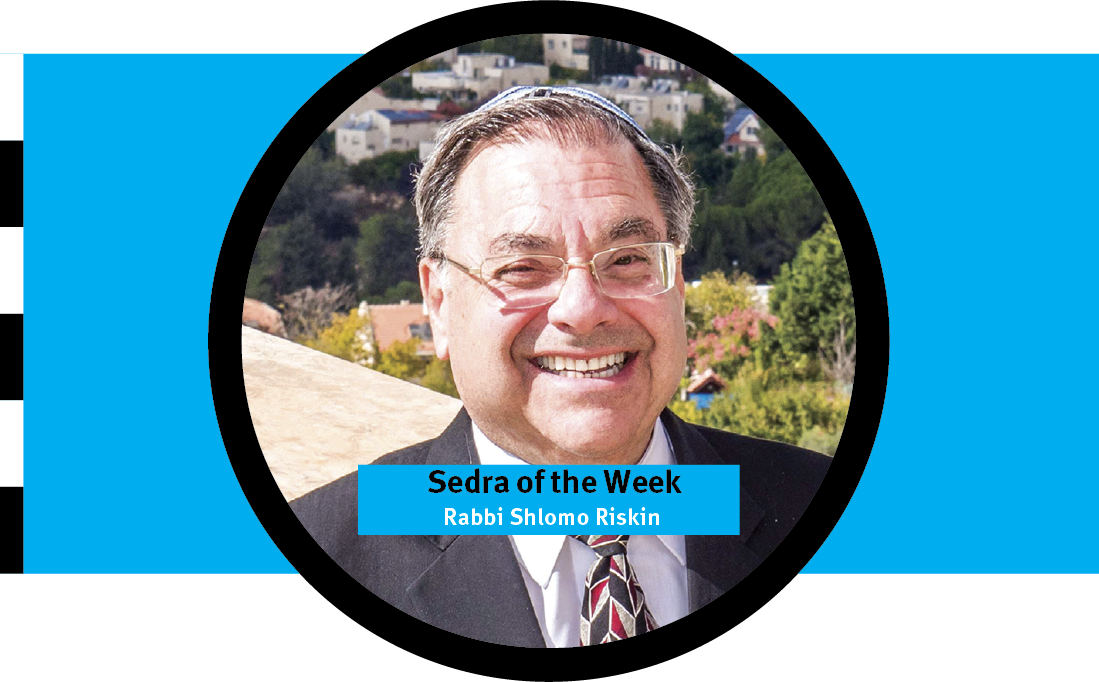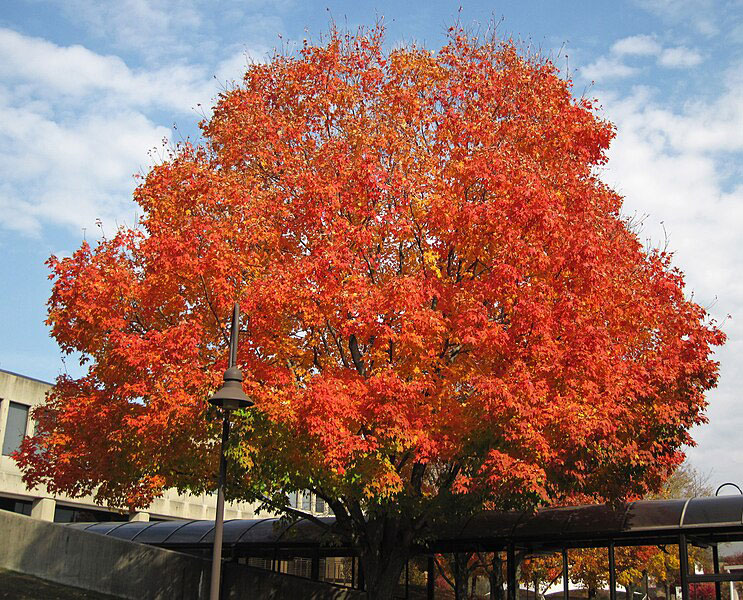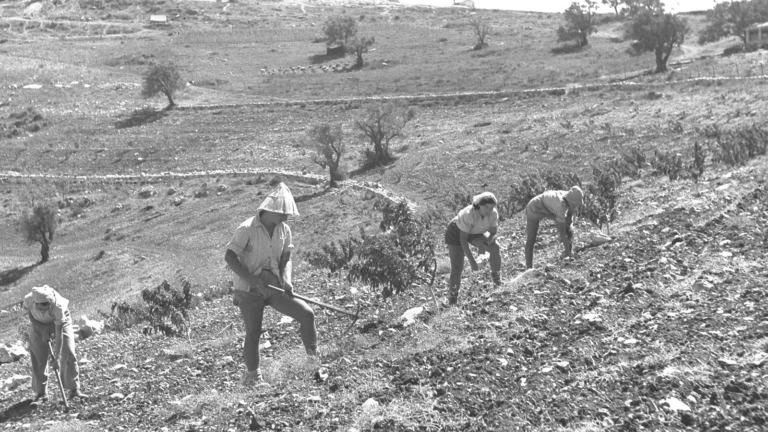Efrat, Israel – “God spoke to Moses at Mount Sinai, telling him to speak to the Israelites and say to them: When you come to the land that I am giving you, the land must be given a rest period, a sabbath to God. For six years you shall plant your fields, prune your vineyards, and harvest your crops, but the seventh year is a sabbath of sabbaths for the land…” (Leviticus 25:1–5)
The Torah portion of Behar opens with the fundamental laws of Shmitah, the seventh year of rest for the land of Israel, paralleling the Sabbath day of rest for every Jew. During these days, when the issue of land is the ultimate question on everyone’s mind — for what is the issue of peace and war in Israel if not land — we have to remind ourselves of the seeming impossibility that, despite almost two thousand years of exile, the Jews never stopped dreaming of their return to the Land of Israel; and indeed we have returned in our generation. Was it something miraculous and mystical that sustained this relationship of a people to land for so long? And if it was, wherein lies the origin of this unique relationship?
Ordinarily, Jewish law divides along two lines: requirements between human beings and God, and requirements between one human being and another. But there is also a third realm: the requirements of a Jew toward his/her land. In fact, the very climax of the book of Leviticus emphasizes precisely this third realm, bein yehudi l’artzo, between the Jew and his land, replete with laws of the tithing of produce, the necessity of allowing the land to lie fallow during the Sabbatical year, and returning all property to its original owner in the jubilee year.
But in order to grasp the full symbolism of a Jew’s relationship to a land, and how this land is at the crux of our experience as Jews, we must take note of a much earlier biblical incident at the very dawn of our history, when our first patriarch purchased a plot for his wife’s gravesite, paying an astonishingly high sum for a relatively tiny piece of land.
Abraham’s purchase of this property does not only provide us with biblical evidence that our deed to Hebron reaches back to our earliest beginnings; it unites our history with a specific parcel of earth, a grave site for our first matriarch Sarah, inextricably linking the founders of our faith-nation with the land of Israel in an eternal bond, within the boundaries of God’s initial covenant with Abraham, a bond of eternity!
This purchase of land indelibly establishes for us the special commitment which the Bible expects a husband and wife to have for each other, a commitment which extends beyond physical life and even translates into a significant monetary expenditure. The sages of the Talmud derive our form of religio-legal obligatory engagement, kiddushin (with a ring or an object of material value), from Abraham’s purchase of the plot of land that would serve as Sarah’s cemetery plot (Kiddushin 2a). The Talmud deduces the “taking” of marriage from the “taking” of the land. Thus, halakha creates a metaphoric parallel between marriage, land and eternity, alluding to the unique and magnificent ideal that we must develop an eternal relationship of love and commitment to our land paralleling the eternal relationship of love and commitment to our spouse.
In order to understand what it means to be “engaged or married” to the land, let’s first isolate three elements of marriage, and then trace these elements back to our portion of Behar. First of all, marriage contains the physical or sexual component, called “entrance” (biah in Hebrew), which expresses the exclusivity of the love relationship. Second, there are the fundamental monetary obligations the couple has to one another, specifically outlined in the Bible (Ex. 21:10) and clearly delineated in the fifth chapter of the tractate Ketubot. Third, the Torah essentially sees marriage as an eternal relationship. Abraham’s obligations to Sarah continue even beyond her lifetime, as we have seen, and the prophet Hosea describes God’s engagement to Israel: “I shall consecrate you unto Me forever” (Hosea 2:21). Although divorce is an allowable option if there is no better solution, the rabbinic view at the conclusion of the Tractate Gittin remains operative: “Even the altar of the holy Temple weeps when a husband and wife are divorced” (Gittin 90b).
Undoubtedly, the ideal is the eternal relationship, and even when psychologies collide, biology heals: For the birth of a child, and the eternal potential of this new creature continuing after the death of each spouse, soon asserts the true continuity of the marital relationship.
We find that these three elements relate to the land of Israel as well! “When you come into the land,” utilizes the verb whose very root refers to sexual relations specific to husband and wife (biyah). And when we’re told to hallow the fiftieth year (Lev. 25:10), the word the Torah employs is ‘kiddashtem’ — the same term which is the rabbinic expression for marriage. The Torah parchment unfurled in Behar seems to weave a mystical marital canopy uniting the nation Israel with the land of Israel.
Second, no sooner have we entered the land than the Torah instructs us concerning our obligation to that land (much like the obligations a husband has to a wife): for six years we are obligated to plant the fields, prune the vineyards, and harvest the crops, “but the seventh year is a sabbath of sabbaths for the land…you may not plant your fields, nor prune your vineyards…since it is a year of rest for the land” (Lev. 25:4–5). The land must lie fallow every seventh year when its produce belongs to the poor who eat freely from the crops. And, in a veritably uncanny, human fashion, resembling the husband-wife relationship, the land responds to our actions, or our lack thereof. If we maintain our obligation to the land, the land will respond to us with abundant produce. If not, the land will grow desolate, for “as long as the land is desolate it will enjoy the sabbatical rest that you would not give it when you lived there” (Lev. 26:35). In other words, the land will lie fallow and unproductive. Hence, a relationship of mutuality exists between Israel and its land.
Third, just as there is an eternal aspect to marriage, there is also an eternal aspect to the land. During the jubilee, the fiftieth year, the Torah commands that land one may have been forced to sell returns to the original owners (Lev. 25:13). This is called redemption of property (geulat karka). Land remains in the family for perpetuity even when dire circumstances force a sale. The eternal link between the land and its owners is the issue addressed in the haftara of Behar when Jeremiah, the prophet of the destruction of the holy Temple, redeems his uncle Hananel’s land for him. Despite the destruction at hand, Jeremiah knows that eventually the Jews will return to the land. God’s promise of an eternal covenant is paralleled in the eternal rights of a family toward its finished property.
Throughout the world, people love the land in which they are born, a love so central that one’s homeland is called in most vernaculars “motherland” or “fatherland.” These terms are absent in the Hebrew language; our relationship to the land is not one of son or daughter to father or mother, but is rather akin to that of husband to wife or wife to husband. May we be worthy of the land and may the land properly respond to our love and commitment to it in this generation of return and redemption.
Shabbat Shalom
Rabbi Shlomo Riskin
Founder & Rosh Yeshiva,
Ohr Torah Stone
Founding Rabbi of Efrat





